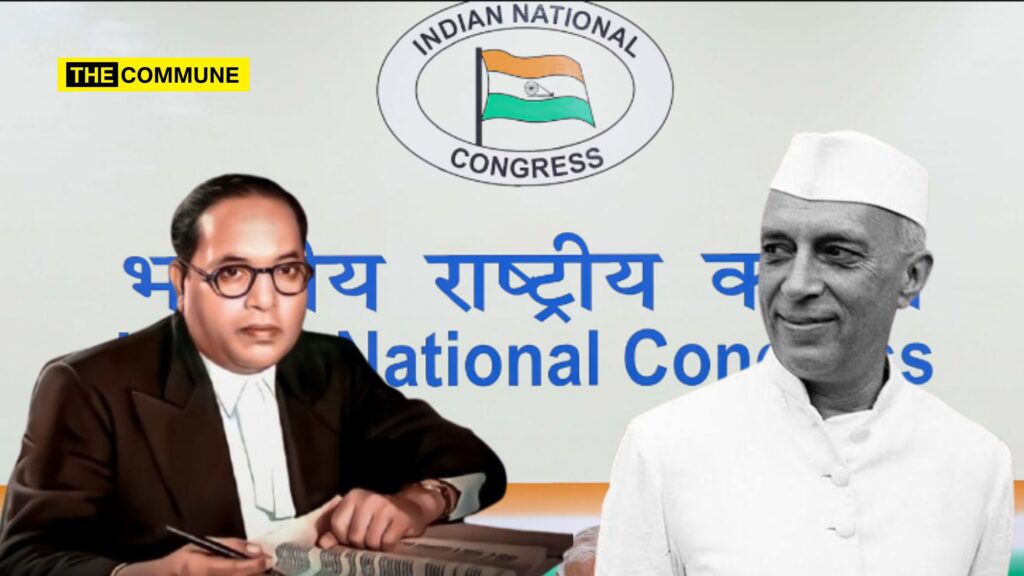Dr BR Ambedkar’s resignation as India’s Law Minister in 1951 was a significant event, driven by multiple grievances regarding the government’s treatment of marginalized communities, its foreign policy, and its failure to advance the Hindu Code Bill. Ambedkar’s frustration had been building over the years, particularly with the government’s failure to allocate him substantial administrative responsibilities despite his qualifications. He had hoped to be entrusted with the Planning Department, but was excluded, and was not considered for key Cabinet committees like Foreign Affairs or Defence. Even his appointment to the Economics Affairs Committee was only due to his protest.
Ambedkar’s resignation was not only due to personal disappointment but also because of the government’s neglect of the Scheduled Castes and Backward Classes. Despite constitutional safeguards, these communities continued to face oppression, and their condition had not improved. The government’s failure to address these issues, while prioritizing Muslim protection, angered Ambedkar. He pointed out the minimal representation of Scheduled Castes in government service, which was far below the 12.5% guarantee outlined in the Constitution.
Ambedkar also expressed his concerns regarding the government’s foreign policy, which he felt had isolated India from its allies, particularly over issues related to Kashmir and East Bengal. He proposed partitioning Kashmir to resolve tensions and criticized the colossal military expenditure of Rs. 180 crores annually as a direct result of the government’s foreign policy. This, combined with his frustrations over India’s strained relations with Pakistan, particularly concerning Kashmir, led to Ambedkar’s deep dissatisfaction with the government’s priorities.
However, it was the mishandling of the Hindu Code Bill that pushed Ambedkar to resign. The Bill, introduced in 1947, was meant to be a landmark social reform. Despite Cabinet support to pass the Bill in the last sessions of Parliament, the Prime Minister proposed a truncated version, focusing only on the Marriage and Divorce section. Ambedkar agreed to this as a compromise, but then, the Prime Minister suggested abandoning even this part of the Bill. Ambedkar was shocked by this decision, believing that the Bill was not dropped due to a lack of time but because more influential Cabinet members sought to prioritize their own Bills.
Ambedkar criticized the Chief Whip for obstructing the Bill’s progress, claiming that the Whip had been disloyal to the Prime Minister and absent during crucial discussions. He refuted the notion that the Bill had been dropped due to strong opposition, pointing out that internal party divisions showed minimal resistance. The Hindu Code Bill had overwhelming support within the Party, and divisions in the House had repeatedly resulted in favorable outcomes for the Bill. Despite this, the Bill was killed with minimal progress, and Ambedkar felt that the government’s failure to address this crucial reform undermined the spirit of the Constitution.
Dr. Ambedkar’s resignation statement was a public protest against these failures. He felt that the Hindu Code was the most significant social reform in India’s history, and abandoning it would undermine the nation’s constitutional progress. He expressed his deep frustration with the Cabinet’s functioning, which he believed had become a mere registration office for decisions already made by Committees. Despite his deep disappointment, Ambedkar remained true to his principles and resigned, choosing to walk away from a government that he felt had failed to address the core issues he cared about.
Ambedkar’s resignation also highlighted his belief that Congress had long silenced and neglected Dalits. He recounted how Nehru’s government had attempted to censor his resignation speech in Parliament, marking a historical first in which Ambedkar was asked to submit a written copy of his speech for scrutiny before speaking.
Rahul Gandhi had spread fake news about Home Minister @AmitShah by sharing a clipped video. He is afraid to speak about Baba Saheb Ambedkar as his family hated Baba Saheb Ambedkar.
Mr Nehru, tried to CENSOR Dr. Ambedkar’s resignation speech in Parliament!
For the first time in… pic.twitter.com/tv33Yx6Y7K
— Pradeep Bhandari(प्रदीप भंडारी)🇮🇳 (@pradip103) December 18, 2024
Humiliated by this request, Ambedkar refused to comply, walked out of Parliament, and released his statement to the press. This act of defiance symbolized his refusal to be silenced by a government he felt had disregarded his contributions to the nation.
In his resignation, Ambedkar made it clear that his decision was not a result of ill-health, as some had speculated, but rather because of the government’s failure to address the vital issues of social justice, foreign policy, and constitutional integrity. He thanked his colleagues and Parliament members for their support during his tenure, but his resignation was an unequivocal statement of his principles, marking a turning point in his political journey.
(With inputs from Dharma Dispatch)
Subscribe to our channels on Telegram, WhatsApp, and Instagram and get the best stories of the day delivered to you personally.

